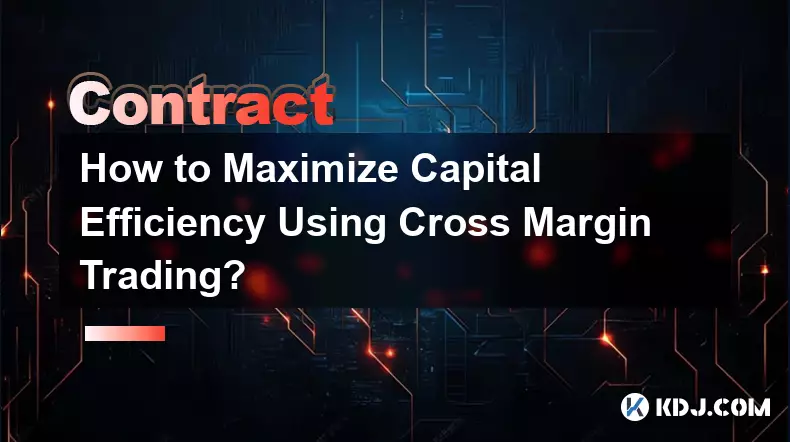-
 bitcoin
bitcoin $87959.907984 USD
1.34% -
 ethereum
ethereum $2920.497338 USD
3.04% -
 tether
tether $0.999775 USD
0.00% -
 xrp
xrp $2.237324 USD
8.12% -
 bnb
bnb $860.243768 USD
0.90% -
 solana
solana $138.089498 USD
5.43% -
 usd-coin
usd-coin $0.999807 USD
0.01% -
 tron
tron $0.272801 USD
-1.53% -
 dogecoin
dogecoin $0.150904 USD
2.96% -
 cardano
cardano $0.421635 USD
1.97% -
 hyperliquid
hyperliquid $32.152445 USD
2.23% -
 bitcoin-cash
bitcoin-cash $533.301069 USD
-1.94% -
 chainlink
chainlink $12.953417 USD
2.68% -
 unus-sed-leo
unus-sed-leo $9.535951 USD
0.73% -
 zcash
zcash $521.483386 USD
-2.87%
Explain crypto contracts for beginners
Smart contracts are self-executing agreements on blockchain networks, enabling decentralized finance and applications by automating transactions without intermediaries.
Jul 16, 2025 at 10:00 pm

What Are Crypto Contracts?
Crypto contracts, more formally known as smart contracts, are self-executing agreements with the terms of the contract directly written into code. These contracts run on blockchain networks and automatically enforce and execute the agreed-upon rules without the need for intermediaries. Smart contracts are a foundational technology in the world of decentralized finance (DeFi) and blockchain-based applications.
Unlike traditional legal contracts that rely on enforcement by courts or lawyers, crypto contracts operate autonomously once deployed. They exist on the blockchain, making them transparent, immutable, and resistant to censorship. Ethereum was the first major blockchain to popularize smart contracts, but many other blockchains now support similar functionalities.
How Do Smart Contracts Work?
At their core, smart contracts are programs stored on a blockchain that run when predetermined conditions are met. For example, if Alice wants to send Bob 1 ETH in exchange for a digital asset, they can agree on a set of rules encoded into a smart contract. Once Bob sends the digital asset, the contract will automatically transfer the ETH to him.
The process involves:
- Writing the contract logic using programming languages like Solidity (used on Ethereum).
- Deploying the contract to the blockchain via a transaction.
- Interacting with the contract by sending transactions that trigger its functions.
Each interaction with a smart contract requires gas fees, which compensate network participants for computational resources used. Smart contracts cannot be altered once deployed unless explicitly programmed to allow upgrades, which ensures trust and transparency among users.
Common Use Cases for Crypto Contracts
There are numerous applications for smart contracts within the crypto ecosystem. Some of the most common include:
- Token creation: Developers use smart contracts to create new tokens, such as ERC-20 tokens on Ethereum.
- Decentralized exchanges (DEXs): Platforms like Uniswap rely on smart contracts to enable peer-to-peer trading without central authorities.
- Yield farming and staking: Users lock assets in smart contracts to earn rewards based on predefined rules.
- NFT minting and sales: Digital collectibles are often created and sold through smart contracts that manage ownership and royalties.
These use cases demonstrate how smart contracts serve as the backbone of decentralized applications (dApps), enabling automation, trustlessness, and programmable money.
Writing and Deploying Your First Smart Contract
For beginners interested in creating a smart contract, here's a basic guide to get started:
- Choose a development environment like Remix IDE, which allows you to write and test smart contracts in your browser.
- Learn the basics of Solidity, the most widely used language for writing smart contracts.
- Write a simple contract, such as one that stores a number or transfers Ether between accounts.
- Compile the contract using the built-in compiler in Remix.
- Connect your wallet (e.g., MetaMask) to the Ethereum testnet.
- Deploy the contract by paying a small gas fee.
- Interact with the contract by calling its functions.
This hands-on approach helps beginners understand how smart contracts behave and respond to different inputs. It’s crucial to thoroughly test any contract before deploying it on a live network to avoid unintended consequences.
Security Considerations When Using Smart Contracts
While smart contracts offer powerful capabilities, they also come with risks. Since these contracts are immutable, any bugs or vulnerabilities present at deployment remain permanently on the blockchain. Common issues include:
- Reentrancy attacks, where malicious actors drain funds by recursively calling a function.
- Integer overflow and underflow, which can manipulate balances incorrectly.
- Improper access controls, allowing unauthorized users to modify contract behavior.
To mitigate these risks:
- Always audit your contract code or hire professionals to do so.
- Use well-established libraries and frameworks instead of writing everything from scratch.
- Test extensively using both unit tests and real-world scenarios.
- Monitor contract interactions after deployment using tools like Etherscan.
Understanding security best practices is essential for anyone working with or relying on smart contracts.
Frequently Asked Questions
Q: Can smart contracts be changed after deployment?A: Most smart contracts are immutable, meaning they cannot be altered once deployed. However, developers can design upgradeable contracts using proxy patterns that allow limited modifications.
Q: What happens if there's a bug in a smart contract?A: If a bug exists in a deployed smart contract, it cannot be fixed directly. In some cases, developers may deploy a new version and migrate data, but this depends on the contract's design and permissions.
Q: How much does it cost to deploy a smart contract?A: Deployment costs vary depending on network congestion and contract complexity. On Ethereum, it can range from a few dollars to hundreds during peak times. Other blockchains like Binance Smart Chain or Polygon typically offer lower fees.
Q: Are all smart contracts public?A: Yes, smart contracts on public blockchains are open-source by default. Anyone can view the code, interact with it, or analyze its functionality through explorers like Etherscan.
Disclaimer:info@kdj.com
The information provided is not trading advice. kdj.com does not assume any responsibility for any investments made based on the information provided in this article. Cryptocurrencies are highly volatile and it is highly recommended that you invest with caution after thorough research!
If you believe that the content used on this website infringes your copyright, please contact us immediately (info@kdj.com) and we will delete it promptly.
- Bitcoin Faces Liquidity Test Amid Shifting Institutional Support Landscape
- 2026-02-05 13:05:01
- Volkswagen Tayron R-Line 7-Seater: A New Era of Luxury Family SUV Hits India
- 2026-02-05 13:00:01
- AI, Crypto Bounties, and Human Labor: The Shifting Landscape of Work
- 2026-02-05 13:00:01
- Volkswagen Unleashes the Tayron R-Line: Pre-Bookings Now Live for Flagship Seven-Seater SUV
- 2026-02-05 12:55:01
- Bitcoin Drops Amidst Analyst Warnings and Shifting Market Sentiment
- 2026-02-05 09:40:02
- The Great Stablecoin Showdown: Systemic Risk, the GENIUS Act, and the Battle for Wall Street's Future
- 2026-02-05 12:55:01
Related knowledge

How to Manage Emotions and "Revenge Trading" in Futures?
Feb 05,2026 at 12:19am
Understanding Emotional Triggers in Futures Markets1. Market volatility directly impacts psychological states, often amplifying fear or euphoria based...

How to Analyze Market Sentiment Using the Fear and Greed Index?
Feb 05,2026 at 07:40am
Understanding the Fear and Greed Index1. The Fear and Greed Index is a composite metric designed to quantify prevailing emotional states among cryptoc...

How to Use Volume Profile to Find Key Futures Entry Levels?
Feb 04,2026 at 11:39pm
Understanding Volume Profile Structure1. Volume Profile displays the distribution of traded volume at specific price levels over a defined time period...

How to Trade Bitcoin Futures with 100x Leverage? (High-Risk Setup)
Feb 05,2026 at 11:00am
Understanding Bitcoin Futures Mechanics1. Bitcoin futures contracts represent agreements to buy or sell BTC at a predetermined price and date in the f...

How to Maximize Capital Efficiency Using Cross Margin Trading?
Feb 05,2026 at 12:40am
Cross Margin Trading Fundamentals1. Cross margin trading allows traders to use their entire account balance as collateral for open positions across mu...

How to Trade Crypto Contracts During Major News Events? (CPI/FOMC)
Feb 05,2026 at 09:59am
Understanding Market Sensitivity to Macro Data Releases1. Cryptocurrency futures markets exhibit pronounced volatility during U.S. CPI and FOMC announ...

How to Manage Emotions and "Revenge Trading" in Futures?
Feb 05,2026 at 12:19am
Understanding Emotional Triggers in Futures Markets1. Market volatility directly impacts psychological states, often amplifying fear or euphoria based...

How to Analyze Market Sentiment Using the Fear and Greed Index?
Feb 05,2026 at 07:40am
Understanding the Fear and Greed Index1. The Fear and Greed Index is a composite metric designed to quantify prevailing emotional states among cryptoc...

How to Use Volume Profile to Find Key Futures Entry Levels?
Feb 04,2026 at 11:39pm
Understanding Volume Profile Structure1. Volume Profile displays the distribution of traded volume at specific price levels over a defined time period...

How to Trade Bitcoin Futures with 100x Leverage? (High-Risk Setup)
Feb 05,2026 at 11:00am
Understanding Bitcoin Futures Mechanics1. Bitcoin futures contracts represent agreements to buy or sell BTC at a predetermined price and date in the f...

How to Maximize Capital Efficiency Using Cross Margin Trading?
Feb 05,2026 at 12:40am
Cross Margin Trading Fundamentals1. Cross margin trading allows traders to use their entire account balance as collateral for open positions across mu...

How to Trade Crypto Contracts During Major News Events? (CPI/FOMC)
Feb 05,2026 at 09:59am
Understanding Market Sensitivity to Macro Data Releases1. Cryptocurrency futures markets exhibit pronounced volatility during U.S. CPI and FOMC announ...
See all articles























![KING vs PAINIFY😳 (1v1 ZONEWARS) [FORTNITE TOKEN/WAGER] KING vs PAINIFY😳 (1v1 ZONEWARS) [FORTNITE TOKEN/WAGER]](/uploads/2026/02/05/cryptocurrencies-news/videos/origin_6984035326d58_image_500_375.webp)
![2/4 [U.S. Hot Search] CIA: Xi Jinping is a paranoid | Xi Jinping’s two phone calls | Shandong’s “Internet-addicted” teenagers rebelled against tyranny | A direct attack on the Chengdu hacker national team | Why GDP must grow by 5% | The bridge under construction by the China Railway 12th Bureau collapsed | Thousands of billions of dollars spent abroad and thirty billion domestic subsidies | 2/4 [U.S. Hot Search] CIA: Xi Jinping is a paranoid | Xi Jinping’s two phone calls | Shandong’s “Internet-addicted” teenagers rebelled against tyranny | A direct attack on the Chengdu hacker national team | Why GDP must grow by 5% | The bridge under construction by the China Railway 12th Bureau collapsed | Thousands of billions of dollars spent abroad and thirty billion domestic subsidies |](/uploads/2026/02/05/cryptocurrencies-news/videos/origin_69840a757417b_image_500_375.webp)

















































